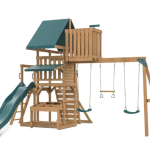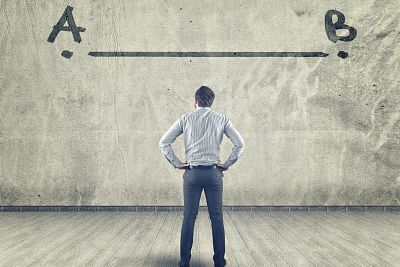What a Depreciation Schedule Means When Buying a Business

What a Depreciation Schedule Means When Buying a Business
When buying a business, the financial details can sometimes feel overwhelming, and one term you’ll likely encounter is the depreciation schedule. The good news is that the mechanics of a depreciation schedule are straightforward (see below).
However, understanding what this schedule represents can be more technical (see even further below). We’re covering all the bases here!
Let’s break it all down.
What is Depreciation?
When a business buys a physical asset, its useful/effective/economic (pick your favourite term) life is determined. Using some accounting techniques (some say tricks), the total cost price is written off over the asset’s life and called depreciation in the Profit & Loss Statement.
The amount of the asset “used” each year is deducted from the original cost price, and the remainder is called the asset’s written-down value.
A simple example (real life is not this simple!).
A business buys machinery with an effective life of 10 years and costs $50,000. Depreciation of $5,000 per year over the next 10 years is recorded. After the first year, the written-down value of the machinery would be $45,000.
We’ll address some of the issues this accounting process causes later.
So, What is a Depreciation Schedule?
A depreciation schedule is a list of all the physical assets the business owns. It also shows the original cost price of the asset, the total amount of depreciation recognised and the written-down value of the asset.
And, just to complicate things, a business will have 2 depreciation schedules. (No, there’s nothing sinister going on.) There will be a depreciation schedule for accounting purposes and one for tax. The government frequently uses tax depreciation rates as an incentive for businesses so a business will typically have an accounting and a tax depreciation schedule. The ATO provides a guide on depreciating assets if you want to do some more reading.
To give you another simple example.
A business buys machinery with an effective life of 3 years and costs $15,000. Depreciation of $5,000 per year over the next 3 years is recorded for accounting purposes. After the first year, the written-down value of the machinery would be $10,000.
However, tax rules allow the whole $15,000 to be claimed as a deduction in the first year, so the written-down value would be $0 on the tax depreciation schedule.
As a possible buyer, both schedules contain useful information.

Why are the Depreciation Schedules Important?
When you’re looking at businesses for sale, understanding the information contained in each depreciation schedule is crucial for several reasons:
1. Evaluating Asset Value
Many believe the depreciation schedule shows how much value remains in the business’s assets, but that is not the case. As I explained, the written-down value results from an accounting process designed to allocate the historical cost of an asset. There are many reasons why an asset may be worth significantly more or less than its depreciated value. (Think used car values during COVID).
The only way to measure the value of an asset is to obtain a market valuation.
However, the depreciation schedule is useful as a complete list of assets owned and the age of those assets.
2. Understanding Tax Implications
Its not only important to understand the Tax implications when selling a business but also the tax on a depreciation schedule.
The tax depreciation schedule, on the other hand, is very important. Sorry - this is a bit technical, so please stay with me.
Broadly, the buyer can only claim tax deductions based on the written-down value on the seller’s tax depreciation schedule. So, if you buy a Hilux ute with a current market value of $40,000 as part of the business but it is written down to $20,000, you can only claim future deductions for $20,000.
Worse, if you sold the ute, you would have to pay tax on the $20,000 gain!
However, there are a few opportunities to circumvent this issue (legally).
3. Negotiating the Purchase Price
The main opportunity is when you are negotiating the purchase price.
Part of the negotiations should be an agreement on the portion of the purchase price allocated to the physical assets. This does not need to be on an individual asset level, but you and the seller must agree on a total price.
The seller will want the allocation to be as low as possible (to avoid paying tax), while you want it as high as possible (to maximise future tax deductions). You may find this is part of the sellers negotiation strategy.
If we return to the Hilux (assuming it is the only business asset), you might agree to allocate $30,000 of the purchase price to the ute. In that case, the seller would pay tax on the $10,000 gain and you would be able to claim depreciation on $30,000.
4. Planning for Future Investments
Knowing the age of critical assets will guide you in planning future capital investments.
However, age is not the only factor at play here. Whether the asset has been properly maintained and how “hard” it has been used will impact its actual useful life.
Conclusion
Like other financial statements, depreciation schedules are a starting point for business buyers considering a purchase. Buying a business has a number of elements that need to considered with the assistance of professional accountants and advisors.
Knowing how to identify the relevant data to guide further enquiries (and what data to ignore) is an important first step for rational decisions.
Tags: buying business owner small business tips
About the author










